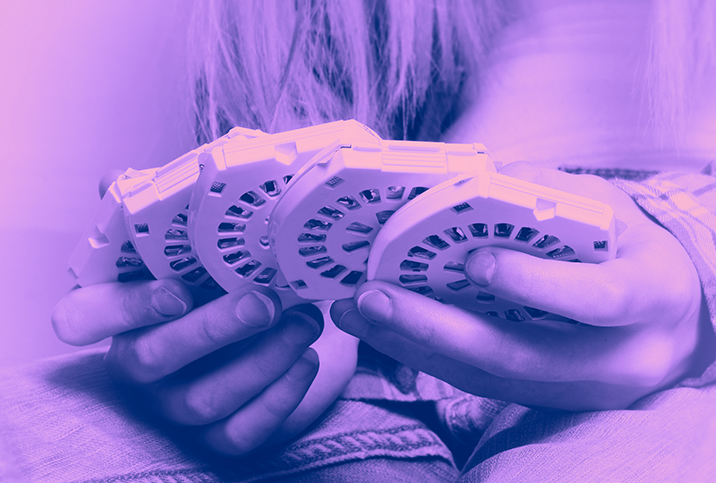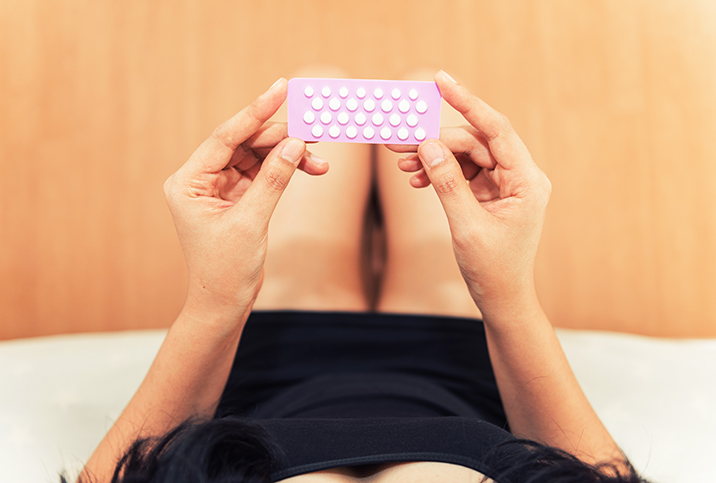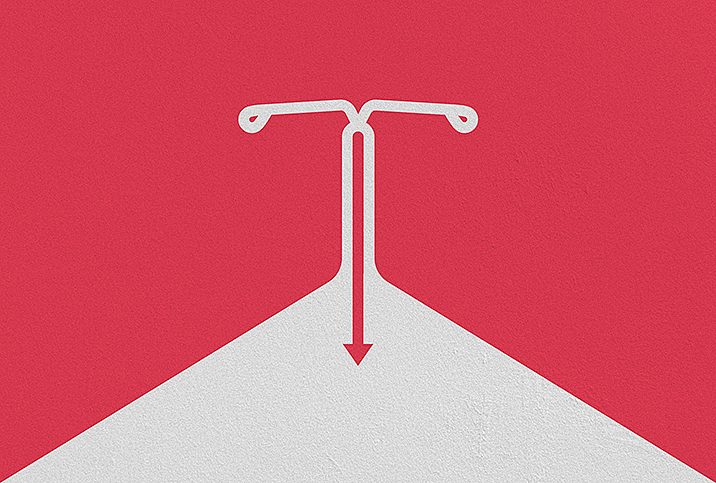The Truth About Post-Birth-Control Syndrome

It's not uncommon to experience side effects when coming off birth control. As the body adjusts to the lack of synthetic hormones, you may notice mental and physical changes.
The symptoms can vary from person to person, depending on the type of birth control and how long it's been used. Side effects may be more common when quitting birth control pills, but they can also occur with the removal of an intrauterine device (IUD), implant or other hormonal contraceptives.
What is post-birth-control syndrome?
Post-birth-control syndrome refers to the symptoms that arise within the first six months of stopping birth control. This term was coined in 2008 by Aviva Romm, M.D., in her textbook, "Botanical Medicine for Women's Health," where she explains the connection between irregular periods and coming off birth control.
However, it's not a very common condition, and most medical experts don't even refer to the symptoms as a condition. There is too little research to provide enough data, so it's unclear how or why it occurs, said Amina Albeyatti, M.B.B.S., a general practitioner who specializes in women's health at the Private GP Group in London. There are also no statistics on how many women are affected by the symptoms to know whether they are a growing problem.
The majority of doctors and healthcare professionals don't like the term "post-birth-control syndrome" because the symptoms you experience after going off birth control are an expected response to discontinuing a medication, not a "condition" or a "syndrome." It makes sense that as the body's natural hormones balance out, you may experience various symptoms. This is natural and normal, and you don't need supplements or detoxes to resolve symptoms that will resolve on their own within a short period.
How hormonal birth control works and affects your period
Oral contraceptives work by disrupting the hormone signals between the brain and the ovaries. This is how they keep you from ovulating. People on hormonal birth control do not have a true period, but rather experience "withdrawal bleeding," which is shorter and lighter than a normal period.
Scientists know that for many people, oral contraceptives can improve acne and PMS symptoms in addition to making periods less severe. The reason people start birth control in the first place is often not for contraception but for these other benefits. However, you get these benefits only while you are taking the pill; it does not permanently alter your biology.
When you stop taking contraceptives, it may take some time for the hypothalamic-pituitary-ovarian axis—the tightly regulated system controlling female reproduction—to normalize. This normalization is marked by a restoration of fertility. With oral contraceptives, the average time frame is three menstrual cycles, though for some people, it happens right away, so do not rely on this estimated time frame for pregnancy prevention. Contrary to common belief, there is no difference in time to return to fertility based on how long someone was on the pill.
So you can expect a few wonky months while your hormones adjust, but this is not representative of your new normal. It can be empowering to know that your body is recalibrating itself all on its own and that any symptoms you are experiencing should be short-lived—kind of like getting your sea legs.
The symptoms of going off birth control
Many women see a change in their bodies when discontinuing birth control, but it can vary from person to person. It can take one to three months for periods to return, and depending on how the periods were prior to taking birth control, they could become heavier, longer or more painful, explained Megan Gray, M.D., an OB-GYN at Orlando Health Physician Associates.
Any other unwanted symptoms that you experienced before taking birth control could also return soon after.
"If you had significant acne associated with your cycles or headaches associated with cycles prior to starting your birth control pills, these symptoms will return within a few months of discontinuing birth control pills," Gray said.
Other symptoms include weight changes, breast tenderness, bloating, ovulation cramping and changes in libido. Not everyone who stops taking birth control experiences these symptoms, but it is important to know what to expect.
In addition to physical changes in the body, you may experience emotional changes. Mood swings, anxiety and irritability can occur, especially when you're coping with the return of your old symptoms. Some people forget what their periods were like before starting birth control, so the shock of this realization can cause distress, and periods could become unmanageable.
If you are struggling with painful or heavy periods, or any other uncomfortable symptoms, you should share your concerns with your doctor, who can investigate the cause and help resolve it.
How long could the symptoms last?
The current limited evidence suggests the post-pill symptoms could last three to six months, Albeyatti said.
"This may be the time required for your body to adjust to the natural hormonal levels within your body," she added.
Before you discontinue birth control pills, Gray recommended that you have a discussion with your gynecologist.
"Include in this discussion the characteristics of your cycles prior to starting birth control pills, so that your doctor can help you understand what to expect from your body after discontinuing the birth control pills," she said.
Knowing what symptoms to expect can help you feel more in control and reduce any worries and concerns you may have. This can lead to quicker and more effective treatment options.
Treating the symptoms
There is no single treatment option because treatment depends on the symptoms and their severity. Some diet and lifestyle changes, such as getting more sleep, eating a varied, balanced diet and reducing stress by practicing yoga, can benefit some women.
While treating your symptoms at home or naturally can work for some people, there will be times when medical intervention is necessary. For someone experiencing heavy or painful periods, alternative hormonal treatment should be discussed with your doctor, according to Albeyatti. Acne can similarly be treated with hormonal medication if this is a concern.
While some people might assume their symptoms are due to post-birth-control syndrome, they may be entirely coincidental, which is why any symptoms that persist past three to six months after stopping the pill deserve to be addressed. These symptoms may indicate a new problem that needs a full evaluation or exploration of nonhormonal treatment options for a preexisting condition.
Remember, the solution will not be found in supplements or detoxes; these choices just distract you from getting to the root of the problem and finding real solutions.


















